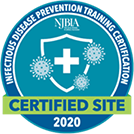Hello — are you listening?
Have we as human beings forgotten how to listen? I am not talking about the formal act of sitting in front of someone, or being on the phone type of listening, what I am referring to is really “listening."

In an article from Harvard Business Review from 1957 Ralph G. Nichols and Leonard A. Stevens write that "people in general do not know how to listen.”
How often are you sitting in front of someone and really hearing what they are saying? Are you sitting there thinking about all of the challenges you need to tackle, or are you truly “present” in the conversation?
Here are several tricks to help you stay engaged and to show you are truly listening:
- Take notes — if you are actively writing down key points of the discussion it will ensure you are actively engaged, and it will be an outward, nonverbal sign to the other party that you are listening.
- Nonverbal clues — one suggestion is to get in the habit of nodding your head during a conversation, at appropriate times, to indicate you understand what is being relayed as part of the discussion.
- Be “present” — some of the keys to be present are obvious — turn off your cell, don’t allow disruptions, and be sure you leave adequate time in your schedule to allow for a meaningful discussion. The other point in being “present” is to turn off all of the other activities in your head, and focus on the individual sitting in front of you.
From my perspective, having good listening skills is a key component to being a good leader. According to Christine Riordan, Provost and professor of management at the University of Kentucky, “… good listening starts with caring what other people have to say, and having compassion is vitally important to being an effective leader."
The key word in her statement is “compassion”. In leading any organization the CEO must have compassion for his team. One of our company core values is “respect" and to me, part of showing that respect to my team is to be compassionate to whatever challenges they are facing.
You can’t be listening if you are talking all the time, nor are you listening if someone comes to you looking to vent and you are trying to fix the problem. According to Mark Goulston, a psychiatrist and author of Just Listen, “the best way to listen when someone is venting is to ask questions.”
Certainly one of the roles of a leader is to help in problem solving but part of that process is to assist individuals in working through their issues, and what better way to be a better coach (I am a firm believer that being a "coach” is a key component to be a good leader) is by listening and asking questions to help the individual come to a resolution on their own.
Another point that Nichols and Stevens raise is that “…the basic problem with listening is that we can all think faster than we talk. The human mouth plods along at 125 words per minute, while a neuron can fire about 200 times a second.” So it goes without saying that for critical/difficult conversations it is important to slow down to be sure your brain isn’t getting too far ahead of the actual words being spoken.
This point also tracks back to my point of being “present." With our brains going at a very fast pace it is easy to have our thoughts go to other “challenges” we are facing, as opposed to listening to the individual we are talking to. It is vital that we learn to tune out the outside “noise” and be “present."

Listening is a skill, and like any skill, must be something that is practiced on a regular basis. This is true in both our personal, as well as our professional life, and listening includes not just verbal, but also nonverbal clues as to what is being conveyed.
So when was the last time you really listened to what someone was saying to you?




